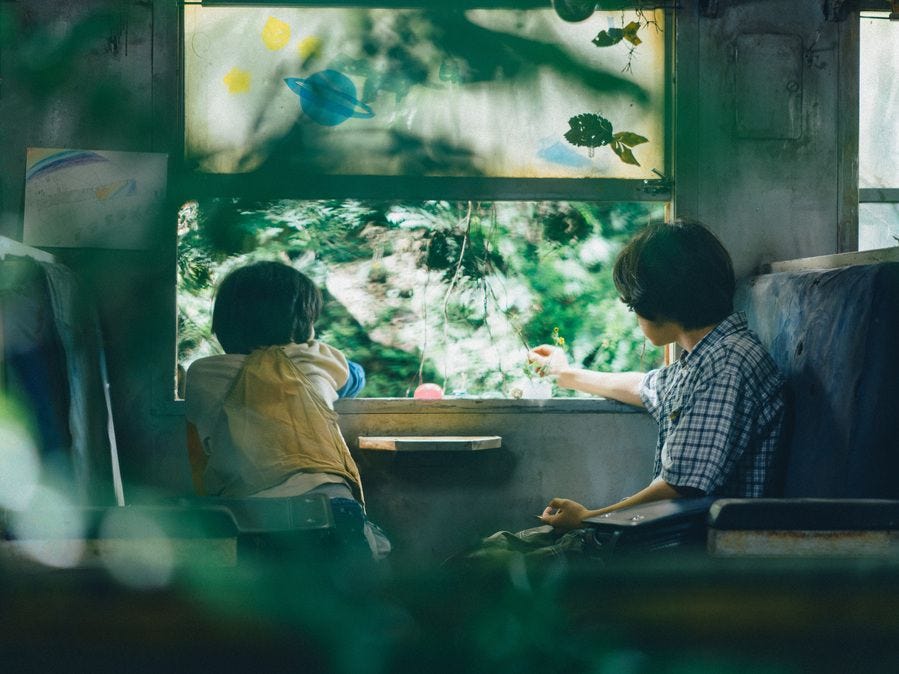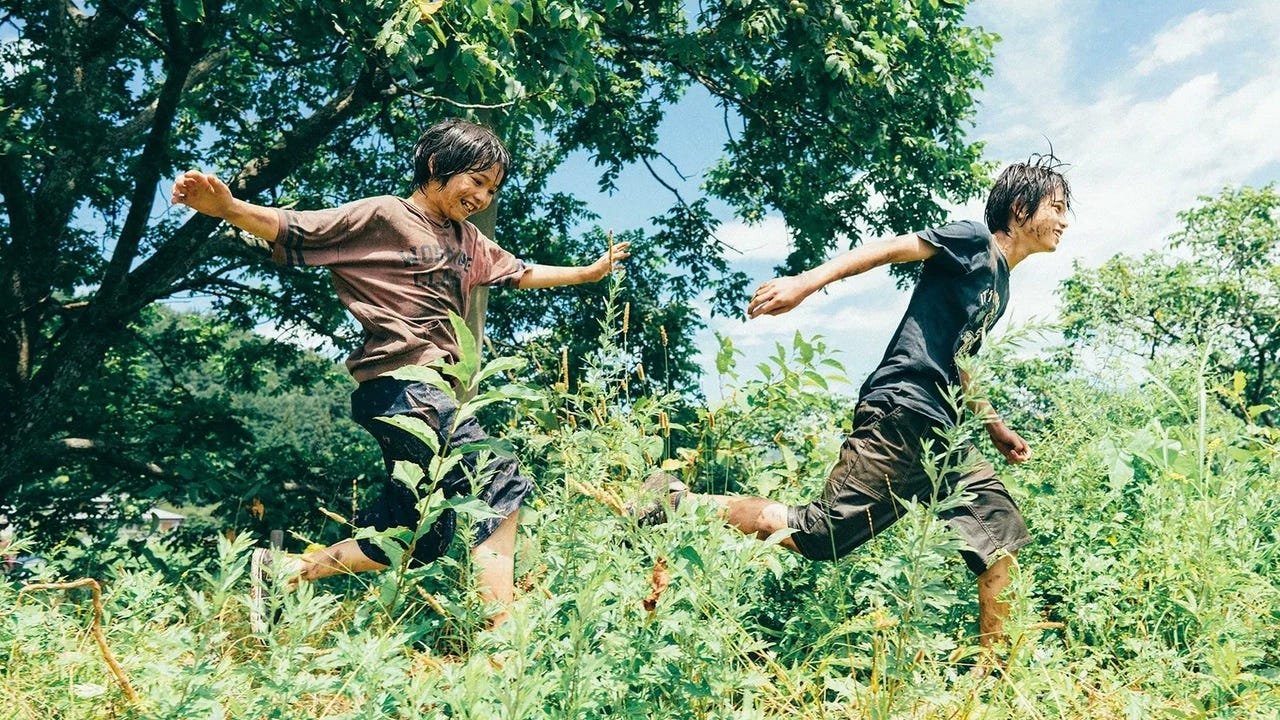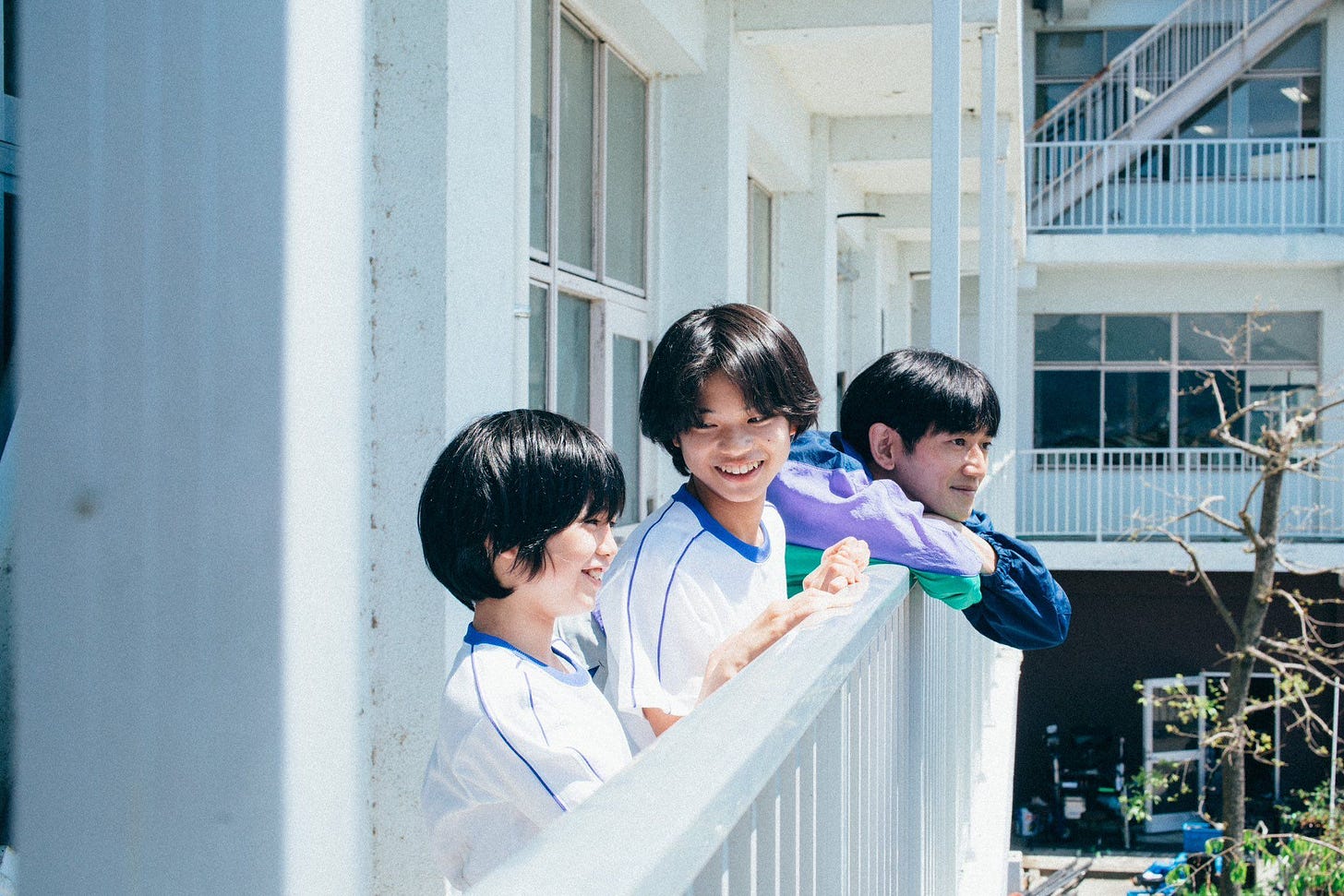A spoiler-free review on Hirokazu Kore-eda’s recently celebrated work, MONSTER (2023) is a tender human drama told from three different perspectives, all of which lead to one complex point of truth.
Every now and then, there are movies that will make you think for days, weeks or even years. Movies with seemingly inconclusive, open-ended conclusion, or movies purposefully meant to burst your bubble of safe haven if it means forcing you to put things into perspectives.
Hirokazu Kore-eda’s latest, MONSTER (2023), is exactly that. A recent winner for the Best Screenplay Award in the Cannes Film Festival, it’s a coming-of-age movie about innocence and acceptance, as much as it is about human empathy and the society that seems to have forgotten the idea of basic human respect. With a screenplay from celebrated scriptwriter, Yuji Sakamoto, and award-winning composer, Ryuichi Sakamoto (who passed away two months after the movie’s release due to cancer), Kore-eda’s signature style easily hones this movie as one of the best I have watched this year.
At first glance, this is a story about Minato Mugino (Soya Kurokawa), a troubled preteen who may or may not be dangerous to himself and/or his peers. Though reserved for the most part, Minato’s sudden change of behaviour does not escape the eyes of Saori Mugino (Sakura Ando), his single mother. Starting from a sudden hair cut to a philosophical, science fiction-esque question concerning a pig’s brain transplant, Saori suspects there is something wrong with her son.
A shocking confession involving assault and bullying by a teacher and a student named Yori Hoshikawa (Hinata Hiiragi) drives the first act. We follow Saori’s perspective as she storms into the principal’s office, demanding answers from the school, but especially, Minato’s homeroom teacher, Hori Michitoshi (Eita Nagayama). Sakura Ando’s portrayal of an upset, angry mother resembles that of a boiling kettle – bubbles simmering on the surface, but with a temperature ready to set things on fire at the sight of dismissive insincerities equally expressed by not just the teachers, but also principal Makiko Fushimi (Yuko Tanaka) herself.
At this point, everything looks obvious. It’s a clear-cut resolution, or so Kore-eda wants you to think. When the movie shifts its gear to another perspective – it’s Hori’s this time – suddenly everything becomes so convoluted you start to wonder if what you just witnessed with Saori have been the truth all along. Even in Hori’s perspective, we are given a different reality, such as the reason behind his quiet sufferings and/or his skittishness.
Just when we assume we know what really happened, both Yuji Sakamoto and Kore-eda stir the wheel into a different direction. More than perspectives, we now drown in a sea of concerned lies and societal demands. It’s an uneasy feeling when you think about how these issues are shouldered by children who should’ve had the freedom to run free and not cower in the dark.
Once again, the pillow shot of a quiet town in Nagano prefecture emerges, followed by the scene of the fire. Undoubtedly, it’s Minato’s turn to speak, and together, we are pushed into this delicate tension that coexists with the imaginary bubble where Yori happily resides. A bubble (or rather, a refuge) that allows him to think about the impending “Big Crunch” apocalypse in hope of a rebirth.
Plot aside, the magic in Kore-eda’s storytelling doesn’t come from excessive dialogues. Instead, it comes from pensive nuances, sometimes done in close-ups, that hit louder than the audibles. While it’s true that veteran actors like Sakura Ando and Eita Nagayama serve their performance (and rightfully so), it’s Kurokawa and Hiiragi who shine as bright as the daylight filtering through the woods. Surrounded by the abundance of plush greeneries and sky blues, the two child actors will be the reason behind multiple tears shed, whether figuratively or literally.
Similarly, symbolism and subtlety are two aspects you’ll encounter in most Kore-eda movies. Admittedly, it never fails to amaze me how the impact of his creative direction comes so naturally. No sudden jolt of shocking images – just pure sincerity in small moments that, if you were to be distracted, might be easily missed because of how mundane they are. Interestingly, I find it fascinating how certain scenes mimic the reality of our everyday lives. Even if I’m familiar with Kore-eda’s directing choices, watching a cinematic representation of human beings surviving on autopilot (glued to the rules we’re told to obey and the stinky eyes we might throw unto those we alienate), whether through poorly made decisions or self-justified excuses, is somewhat terrifying.
“If only some people can have it, that's not happiness. that's just nonsense. happiness is something anyone can have."
Undeniably, I also want to pay tribute to Ryuichi Sakamoto – the wizard who successfully crafted an original soundtrack to pin me in this limbo between melancholia and delight. Together with Yuji Sakamoto, this is truly the golden trio collaboration I never knew I needed1.
At the end of the day, MONSTER is subliminal. It demands its audience to have a discussion in the aftermath. Like the raging rainstorm and the crashing of tree branches on the roof of an abandoned train, the echo of Minato’s voice singing who is the monster? is a chilling repetition to think about, especially when you realised the monster is quite possibly none other than you, me and/or the strangers manifesting around us.
MONSTER marks the second film that Kore-eda directed but did not write himself. The first movie was MABOROSI (1995).







